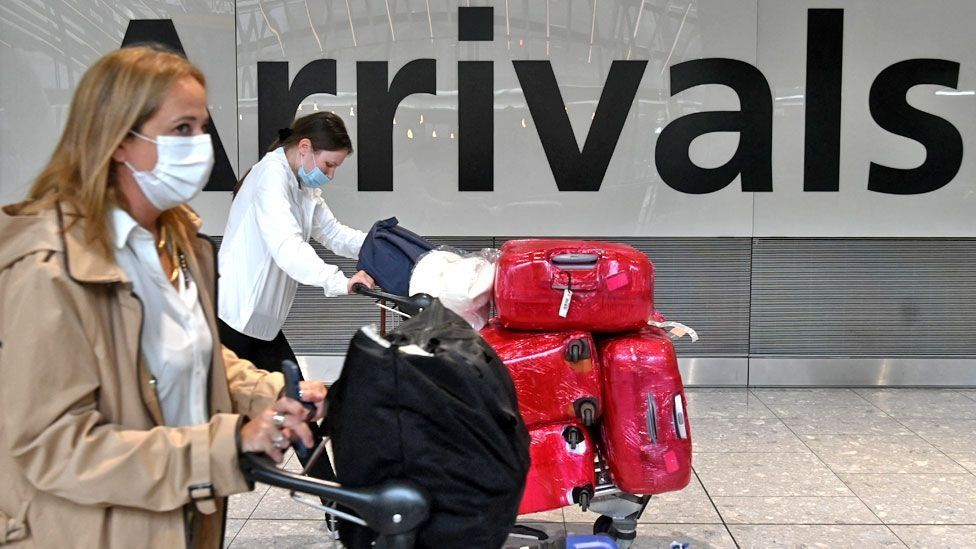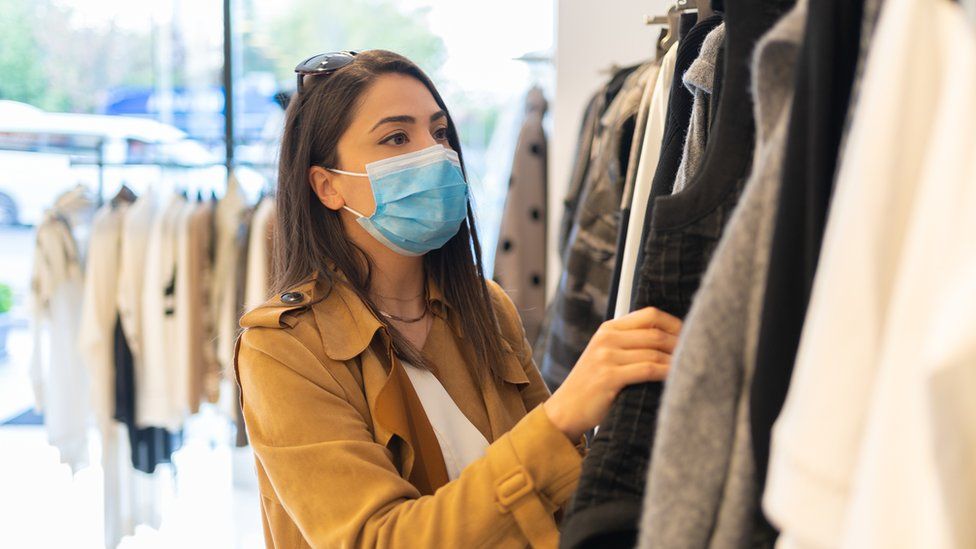
Making Christmas plans this year? Then you must take precautions, Mark Drakeford has said in regards with the Omicron variant of the Coronavirus.
One senior official has said that it is ‘inevitable it will be found in Wales.’
Ministers are considering whether further restrictions are needed – but Mr Drakeford said there are no plans to close businesses.
On Monday he and Nicola Sturgeon (Scotland’s First Minister) called for e’veryone arriving in the UK to have to isolate for eight days.’
But this ide has been rejected by No.10 Downing Street.
Six Omicron cases have already been found in Scotland making the number of confirmed cases i the UK now nine.
The BBC have reported:
Two cases in Nottingham and Essex have been linked to travel to southern Africa.
The third person confirmed to have the new variant is no longer in the UK, but had visited Westminster.
Early evidence suggests Omicron has a higher re-infection risk than previous variants, but it is not yet known how it impacts on the effectiveness of vaccines.
What’s the official advice on booster jabs?
Boosters should be offered to over-18s to help stop a possible Covid wave driven by the Omicron variant, UK government advisers have said.
The Joint Committee on Vaccination and Immunisation (JCVI) wants the minimum gap between the second dose and booster to be cut to three months.
It said boosters should be given to the most vulnerable first.
The JCVI wants those aged 12-15 to be invited for a second jab three months after their first.
Mark Drakeford said the Welsh vaccination chief had put together a plan to deliver the boosters.
“There’s more work to do on it of course with our partners in the local health boards, we will want to move as fast as we can,” he told the BBC.

Recent Covid figures in Wales show a continuing downward trend, with cases at 490 per 100,000 people over the past seven days.
Nine more deaths were reported on Monday, bringing the total to 6,391.
There were 567 patients with Covid in hospital beds in Wales on Friday, down from 653 the previous week, with 47 patients being ventilated in critical care beds – down from 57.

Ms Sturgeon and Mr Drakeford wrote to the prime minister on Monday calling for an emergency Cobra meeting as soon as possible.
“The emergence of Omicron poses a potential threat to the UK,” they said.
“We need to work collectively – and effectively – as four nations to take all reasonable steps to control the ingress of the virus to the country and then to limit its spread.”
They said the day eight PCR test for travellers arriving in the UK should be reinstated, “requiring isolation for that whole period”.
The two also called for business support schemes to be funded by the UK government’s Treasury “in the event more interventionist measures are required”.
“We do not want to be in a position again where our public health interventions are negatively impacted by a lack of financial support, but can be switched on as required for England,” they said.
‘Detrimental effect’
Downing Street responded saying it does not have plans to introduce the requirement for passengers to take a PCR test on day eight as well as day two on their return to the UK.
The prime minister’s spokesman said: “We believe the approach we’ve taken is the proportionate one to the evidence we currently have available.
“Introducing further isolation and testing requirements would have a detrimental effect on the travel industry and those planning to go travelling.”
He added ministers were not planning to change their approach with regards to furlough either.

Health Minister Eluned Morgan told BBC Radio Cymru’s Dros Frecwast programme that ministers would discuss whether Wales will need stricter measures “over the next few days”, including whether to close schools earlier for Christmas.
Mark Drakeford later said that there are no plans to close businesses – despite the call for financial support from the Treasury.
He said people should approach Christmas “in the way that we’ve advised all the way through”.
“Christmas should be different this year. Christmas should be better this year.
“That doesn’t mean that people should neglect those simple things that we can do in our own lives, that still help to protect ourselves and others.
“Those simple precautions: think about vulnerable people, if members of your family are particularly likely to suffer from Coronavirus – think carefully about whether you visit them or involve them in your plans.
“Take a lateral flow test if you’re going to visit somewhere where you might be at risk or others are at risk wear masks in crowded public places.”
‘Matter of buying time’
Dr Atherton said it is a “matter of buying time” with the new variant, saying it was a case of when not if the variant will be identified.
“Our best line of defence against this still is vaccines and social distancing, those things that we know keep us safe because they can reduce the transmission of this new variant in the community whilst we understand the implications of it.”
“My expectation is that this will probably take off, we will see cases in Wales – we haven’t seen any yet but I do expect us to see cases, they will probably increase.
“And my anxiety is also about January and February next year, because it does take time for these things to take off.”
“The Omicron variant does give us further cause for concern and the reason for that is that there’s so much that’s unknown.
“We don’t know whether it will lead to more harm than the Delta variety and if it does then hospital rates could go up. So we just need to be cautious for the moment, not to throw caution to the wind”.

What does Omicron mean for Covid rules?
Ten countries in southern Africa are now on the UK’s travel red list, meaning that until further notice, any British or Irish residents arriving in the UK after recently visiting any of those countries will have to quarantine in an approved hotel for 10 days.
Residents from the countries themselves will not be allowed into the UK until the red list status changes.
New measures put in place will require everyone entering Wales from abroad to take a PCR test and isolate, pending a negative result.
Early evidence suggests the Omicron variant – initially reported to the World Health Organization from South Africa on Wednesday – has a higher re-infection risk.
On Monday, an urgent meeting of G7 health ministers is being held “to discuss the developments on Omicron”.
Masks will be compulsory in shops and on public transport in England, and arrivals to the UK will have to take PCR tests from 04:00 GMT on Tuesday.
Face coverings are already mandatory in shops, health and social care settings and on public transport in Wales.